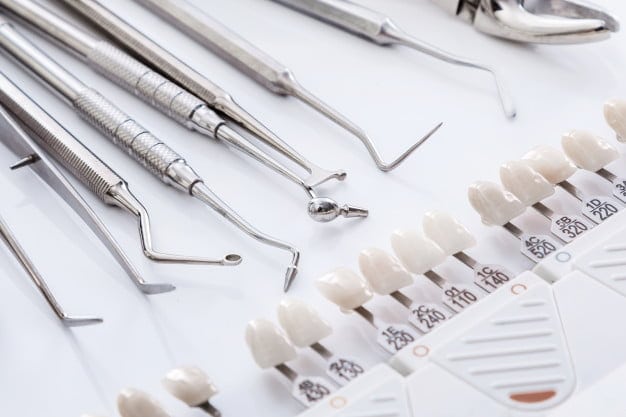Dental Veneers are a non-reversible, non-invasive aesthetic dental treatment, mostly used on vestibular surfaces of the anterior teeth, both inferior and superior, to improve or correct imperfections related to anatomy, color, shape, fractures, aesthetics of the teeth and interdental spaces, thus improving the overall appearance of the smile.
Types of Dental Veneers
There are so far two types of dental veneers depending on the material used:
Ceramic Dental Veneers
This type of veneers is made with dental ceramics, the most used are: feldspathic or lithium disilicate. They can be developed by layering, pressing or machining procedures.
With this type of veneers a result is achieved that perfectly mimics the natural teeth, achieving a very good stability in terms of color, texture and gloss, which far exceeds the result of resin veneers
They are less invasive than resin veneers, since they require very minimal or none preparation of the teeth, depending on your teeth, so you can preserve up to 100% of your enamel or a fairly high percentage.

Resin dental veneers
Its installation can be by means of the direct procedure carried out in the same consultation or under the indirect procedure, that is to say, they are carried out previously and then they are installed on the patient’s teeth.
They are cheaper than ceramic veneers, but they are more prone to discoloration and tooth wear and require much of your tooth enamel to be removed for installation.
Advantages of dental veneers
Perfect Smile Whitening
If your teeth are stained and you don’t want to be subjected to dental whitening treatments from time to time, this is an extraordinary option since using both resin and ceramic veneers in a shade lighter than that of your natural teeth, you will achieve a smile of healthier, whiter and brighter appearance..
Correction of minor cosmetic problems
With the help of dental veneers, the appearance of teeth that are slightly separated, crooked or inclined can be corrected without the need for orthodontic treatment.
Replacement of damaged enamel
Although it’s true that natural enamel is quite strong, in some cases it’s lost or damaged, as a result of heavy brushing, excessive consumption of acidic foods, stomach acid caused by gastrointestinal problems or dental bruxism.

Disadvantages of dental veneers
Quite high cost
Both the resin and ceramic procedures tend to be very high in cost, since they require a lot of time on the part of the dental specialist.
Increased tooth sensitivity
Many of the patients who undergo this type of dental cosmetic treatment report that the sensitivity of their teeth increases considerably, however this can be controlled using the appropriate dental products and indicated by the dentist.
It’s irreversible
Once the dental veneers are installed, there is no going back you will not be able to go back to the natural teeth, however in the event of an accident it can be replaced by another.
